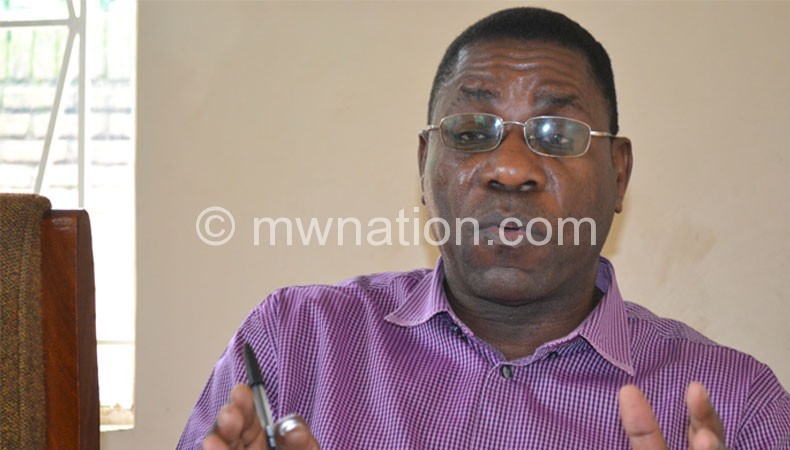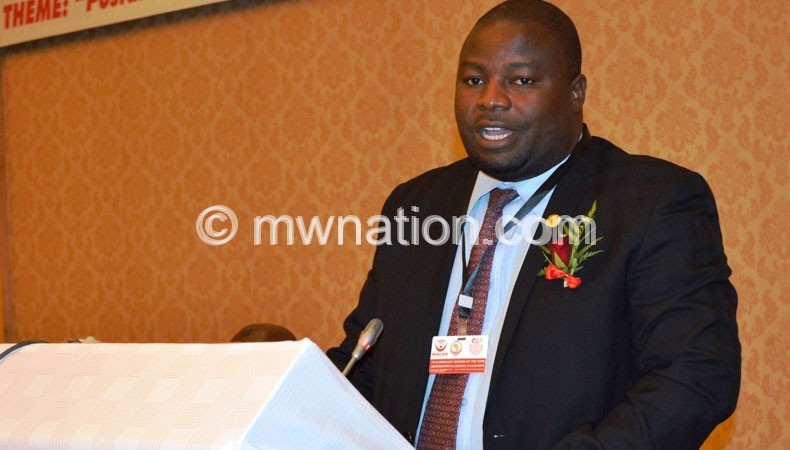Cama revives crude oil saga
- Demands answers from new administration
The Consumers Association of Malawi (Cama) has revived the controversial Malawi-Nigeria crude oil deal, questioning why government is taking time to release findings of a probe into how proceeds were used.

Cama says government needs to come out clear on the issue and clear the bad air surrounding the deal as it is suspected that the Nigerian crude oil transaction was not carried out transparently and for the benefit of Malawians.
In an interview yesterday, Cama executive director John Kapito said the consumer rights body and Malawians have been eagerly waiting to be told how the oil money from Nigeria was used or who is keeping the same and who directed that such huge sums of money go through the Office of the President and Cabinet (OPC) where it is alleged that it vanished.
At the centre of controversy is the agreement former president Joyce Banda signed with a Nigerian company in May 2012 that the Malawi Government, according to OPC, was to buy 30 000 barrels of crude oil per month at a cost of $120 million (about K54 billion).
Kapito said after not being satisfied with an explanation given in March 2014 by the Joyce Banda administration which, he observed, did not tackle critical questions, Cama saw light at the end of the tunnel when Peter Mutharika and Democratic Progressive Party (DPP) came to power after their triumph in the May 20 Tripartite Elections.
Said Kapito: “[But] it is almost one year now since the new government came into power. When it issued a statement saying it will investigate the crude oil deal as well as several other deals that raised eyebrows in the other administration, we thought very soon Malawians will know what really happened to the crude oil proceeds.

“But now we are worried. The issue is taking long to be finalised and time is passing and who knows, maybe soon it will be a forgotten issue.”
He said the response Cama received from OPC when it made enquiries with the Chief Secretary was lacking and though the association wrote the OPC again seeking clarification on the missing information, it never got one.
Said Kapito: “The OPC failed to give tangible answers on why it received the money from the crude oil deal instead of government’s account maintained at the Reserve Bank of Malawi. It also failed to explain who negotiated for the deal on behalf of Malawians.
“Another issue that was not explained was why the Ministry of Natural Resources, Energy and Mining were not involved in the whole process when all matters concerning oil are supposed to be handled by this particular ministry and Consumers Association of Malawi is looking for those answers from this new government.”
When contacted yesterday, Kondwani Nankhumwa, Minister of Information, Tourism and Culture, who is also the official government spokesperson, said he is aware of the issue but did not have the progress report handy as it was at the office.
In a written response to Cama’s query in March 2014, OPC said due to scarcity of foreign exchange, Malawi Government was unable to fulfil the deal and a decision was made to engage State-owned National Oil Company of Malawi (Nocma) to shoulder the obligation and remit royalties to government.
“From the sale agreement spanning from 1st May 2012 to 30th April 2013, royalties amounting to $1 256 081.70 [about K565.2 million] has been earned and transferred into Nocma’s foreign currency denominated account [FCDA] for crude maintained at National Bank of Malawi,” said then OPC spokesperson Arthur Chipenda in the letter.
He said government, through the Ministry of Finance, asked Nocma to transfer some of the proceeds to a government account maintained at the Reserve Bank of Malawi.
“The balance of approximately $417 618.70 [about K187.9 million] which includes an element of interest earned from the bank is left in Nocma’s account with the National Bank,” he added.
However, earlier, Kapito indicated that the response did not indicate how Nocma was chosen to receive government finances instead of the Reserve Bank of Malawi and also a full detail of how many barrels and shiploads came to Malawi hence his association’s demand for inclusive answers and explanations.
Malawi landed on the deal in the course of looking for alternative sources of oil amid a two-year petroleum drought that hit the country. The country does not have a refinery and the crude oil was meant to be sold and earn forex to buy refined oil for use.





